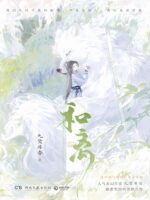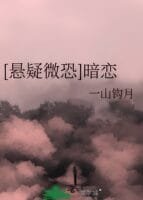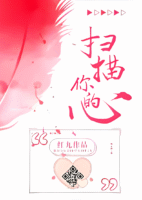Raising Kids C29
by MarineTLChapter 29: The Heartless Scholar Who Abandoned His Wife and Child (7)
When Xie Hui learned from the system about Qi Niang’s current miserable state, it happened to be the fifth seven-day mourning period (the 35th day after death) for the old lady and Xie Fu. He tossed a piece of joss paper into the brazier, lowering his gaze slightly to hide his thoughts.
The five-year-old, Xu Fenghe, thought her master was grieving, so she clumsily patted Xie Hui’s back with her little hands.
“Master, don’t be sad.”
Xie Hui softly acknowledged her words, then glanced at Xu Fenghe’s father, who was standing at the doorway, signaling for him to take the child home.
The weather was getting colder, and children were frail. It was one thing for her to insist on staying with him during the day, but at night, it was better to send her home early to rest.
Li Shu and Xie Mo had also returned. They waited until the ceremonies were over before heading to the village house to stay for the night.
Perhaps because she had knelt for too long during the day, Li Shu barely ate anything for dinner and retired early to her room.
As Xie Hui was about to return to his own room, he unexpectedly found a familiar figure sitting in the courtyard. Walking over, he saw Xie Mo sitting on a stone stool and asked,
“What’s wrong? Why aren’t you resting so late?”
Now more mature since getting married, Xie Mo leaned on the stone table with a perplexed look on his face.
Ever since his father moved in, the courtyard had been filled with medicinal herbs, and his father always carried a unique herbal scent. This distinct fragrance gradually eased the tension that had been gripping Xie Mo’s mind.
“Father, I feel like I can’t distinguish right from wrong in this matter. There are so many things I just can’t figure out.”
Xie Hui rarely had heart-to-heart talks with his grown son. In this era, emotional expression was often reserved and restrained, so Xie Hui could only take this chance to enlighten him.
“What do you mean by that?”
“Qi Niang was indeed implicated by her father, and she herself did no great wrong… The reason His Majesty is so strict with slaves is mostly to serve as a deterrent to others.”
Now a scholar (Juren), Xie Mo had received meticulous instruction from Master Li, and after becoming his son-in-law, Master Li had taught him even more about the ways of officialdom. Naturally, speculating on the emperor’s intentions was part of his learning.
“Previously, Qi Niang was indeed a slave, but after she married my uncle, shouldn’t he have treated her as his wife? Shouldn’t a wife be treated with respect?”
“My uncle abused his wife and treated her like an animal. That was wrong in the first place, but I still feel… my uncle did not deserve to die.”
Seeing his son, rarely showing such youthful bewilderment under the moonlight, Xie Hui reached out and ruffled his hair—just as he would do with his little disciple.
The flood of questions in Xie Mo’s heart was instantly swept away by this gesture.
“Father, I am not five years old.”
Xie Hui withdrew his hand and clasped it behind his back. It seemed he was getting addicted to pinching little kids’ hair buns. Clearing his throat, he asked,
“Anything else?”
Xie Mo nodded lightly and continued,
“Also, my aunt killed my uncle and grandmother, yet she’s only been sent to build dikes? My teacher taught me that everyone should take responsibility for their actions. Why are slaves treated with more leniency than ordinary citizens?”
Xie Hui patiently waited for him to finish, then sat down on a stone stool and explained each point.
“She is the daughter of a corrupt official—that alone is an original sin. You only know Qi Niang, but you don’t understand the broader context. Because she was the legitimate daughter of a corrupt official and grew up in luxury, she is punished this way.”
“Her father’s illegitimate children, who were not valued, did not cost their father much money. They lived as common slaves, no different from ordinary servants.”
The cost dictated the consequences. When the crimes were exposed, the weight of the punishment corresponded to how much had been spent. The emperor had spent a full year meticulously drafting detailed laws regarding slaves and their punishments.
“Your grandmother spoiled your uncle too much and never disciplined him properly. What he did was indeed wrong. In the future, whether you become a marquis or prime minister, always remember to raise your children well.”
At the mention of children, Xie Mo’s face turned red, and he nodded lightly.
“I will remember, Father.”
“The emperor does not treat slaves more leniently than commoners.”
This statement deepened Xie Mo’s confusion. He instinctively asked,
“But ordinary people must pay with their lives for murder. Why do slaves only have to do hard labor?”
The bright moonlight shone on the treetops, and the forest echoed with the sounds of birds. Xie Hui tapped his index finger lightly against the table, chuckled, and replied,
“If you want to become an official, you should memorize the legal code. When a slave commits a crime, the completion of a dike offsets the sin of being a slave. After that, their status is re-evaluated, and they are punished under the law as ordinary citizens.”
Xie Hui was somewhat curious about this world’s emperor. If given the chance, he would even like to meet him. The laws regarding slaves were designed to extract every last bit of their value before they were disposed of.
“There’s actually such a regulation?”
Xie Mo was completely stunned. Thinking back, he realized that his understanding of the law was indeed lacking—he had spent more time studying literature.
“Of course.”
After explaining everything, Xie Hui stood up, advised his son to rest early, and left the courtyard, giving Xie Mo space to think.
As for himself… well, it was better to sleep early and wake up early.
At first, when he started these missions, Xie Hui thought he was fulfilling a dream of time travel. But when he first arrived in ancient times, the hardest thing to adjust to was the complete lack of entertainment—boredom to the point of growing mushrooms.
Fortunately, after experiencing so many different worlds, he gradually got used to sleeping early in ancient times.
Since getting married, Li Shu had been living with her husband in the county, which made her feel a little guilty. Although she had no mother-in-law above her, now that she was married, she felt she should also fulfill her duty as a daughter-in-law to her father-in-law.
Xie Hui didn’t particularly want this, but he couldn’t reject her good intentions.
Li Shu had also heard from her husband that her father-in-law had taken in a little disciple. Xu Fenghe was still young, but when she was drying medicinal herbs in the courtyard, her chubby little face was full of focus, making Li Shu adore her endlessly.
In the afternoon, Xie Hui went to another village to treat a patient he had seen before. Since it was too far, he left Xu Fenghe at home.
As the sun was about to set behind the mountains, he returned and happened to see a group of people gathered at the village entrance—among them was his daughter-in-law.
Carrying his medical kit, Xie Hui had no intention of eavesdropping, but since there was only one road leading into the village, he inevitably overheard a few sentences.
One of them mentioned that Xie Fu had previously invited the clan elders to discuss having Xie Mo marry that slave.
Xie Hui found Li Shu’s reaction somewhat unexpected.
She calmly stated that she didn’t believe it, saying she trusted Xie Mo. Then, without further ado, she took Xu Fenghe by the hand and walked back into the village.
Not wanting to run into such an awkward situation, Xie Hui deliberately lagged behind before heading home. But who would have thought that upon his return, he would once again stumble upon Li Shu and Xie Mo discussing this very matter in the courtyard?
In terms of personality, Xie Hui actually found Li Shu to be more clear-headed and rational than the so-called transmigrator, Qi Niang.
Oftentimes, modern people who transmigrate aren’t necessarily superior to those who originally lived in that era. The biggest difference mostly lies in the education they received.
During the mourning period, Xie Hui didn’t keep Xie Mo at home. Instead, following the advice of Master Li, he gave him some silver notes and sent him out to broaden his horizons.
With Master Li’s approval, Li Shu accompanied Xie Mo. They planned to return before the New Year, stopping by her maternal grandfather’s home along the way.
Not long after they left, the system proactively informed Xie Hui that Qi Niang had started making waves again.
The Fourth Prince, who had come to inspect the area, had fallen for her at first sight. When the dam was completed and the enslaved people were set to be executed, he had someone purchase a slave as a stand-in to take Qi Niang’s place. Then, he secretly brought the real Qi Niang back to the capital.
Upon hearing this news, Xie Hui’s hand trembled, ruining the prescription he had just written. Xu Fenghe, who was beside him, quietly removed the ruined paper and replaced it with a fresh one.
Previously, Xie Hui had been wondering how to deal with the story’s male protagonist. Now, the opportunity had presented itself.
From the Fourth Prince’s perspective, it was only natural for him to resent his wife’s former husband. His indulgence allowed his subordinates to act recklessly, ultimately harming Xie Mo, and the punishments he received were barely a slap on the wrist.
From Xie Hui’s perspective, he would not hold back against someone who had harmed his son in a past life. It was simply a matter of skill and strategy.
At first, he had thought it would be difficult to handle a lofty prince, but now, the prince had essentially dug his own grave by favoring a slave.
Time flew by. After the mourning period ended, they waited a while longer until it was finally time for Xie Mo to travel to the capital for the imperial examination.
This time, Li Shu did not accompany him. She was in the early stages of pregnancy, and since the first three months were crucial, the journey’s hardships might be too much for her.
Over the years, Li Shu had continuously reshaped Xie Hui’s perception.
After returning from her travels, she had discussed with Xie Mo and Master Li about opening a school in the county, where she would personally teach girls at an extremely low tuition fee.
Most of the parents who sent their daughters did so either out of respect for Master Li or because they believed literacy would help their daughters secure better marriages. Nonetheless, it aligned with Li Shu’s original intentions.
As long as they weren’t going astray, Xie Hui, as their elder, saw no need to interfere.
He could tell that Li Shu wanted these children to gain wisdom through education, so he provided a significant amount of silver to ensure her loss-making school could continue operating.
Since their small county was quite far from the capital, Xie Mo left two months in advance. After the exams, he would have to remain in the capital until the results were announced, making it a long process.
Li Shu, on the other hand, remained patient. For the first few months, she continued teaching at the school.
Many people were initially wary of male teachers ruining their daughters’ reputations, but upon hearing that Li Shu was the teacher, their concerns disappeared.
According to Li Shu’s plan, she initially taught a few orphaned beggar girls. Once they were properly educated, she intended to use silver to hire them as teachers to continue instructing others.
She understood that her strength was limited, so she only sought to do as much as she could within her means.
Fortunately, her parents were open-minded, and both her father-in-law and husband supported her.
Meanwhile, Xie Hui spent his days in the countryside drying medicinal herbs and occasionally taking his group of apprentices out to treat patients. Over the years, he had taken in quite a few young apprentices.
He had learned medicine before, but every world’s medical system differed slightly. Even the smallest differences were enough to keep him engrossed in study for a long time.
One day, while visiting the county to purchase medicinal herbs, Xie Hui decided to stop by and check on Li Shu, intending to take her pulse and see how her health was.
Just then, a servant rushed in excitedly and announced in a loud voice:
“The county magistrate has sent people over!”
—
#Footnotes:
—In traditional Chinese mourning customs, families hold ceremonies every seven days after a person’s death, up to the seventh seven-day (49th day). The first seven-day (Tou Qi) is the most significant, as it’s believed the soul returns home. By the fifth seven-day (35th day), prayers and offerings continue to guide the spirit’s journey. The seventh seven-day (49th day) marks the end of this phase, helping the soul transition to the afterlife. This practice is rooted in Buddhist and Taoist beliefs about the afterlife and reincarnation.
—”Dikes” are structures built to control or prevent the flow of water, typically to protect land from flooding. They are commonly used along rivers, lakes, and coastal areas. In historical China, dikes were crucial for managing water from major rivers like the Yellow River and the Yangtze River, preventing floods, and supporting agriculture.






![Good Baby [Quick Transmigration] Cover](https://marinetl.xyz/wp-content/uploads/2025/01/Picsart_25-04-16_22-55-55-418-133x200.jpg)



0 Comments